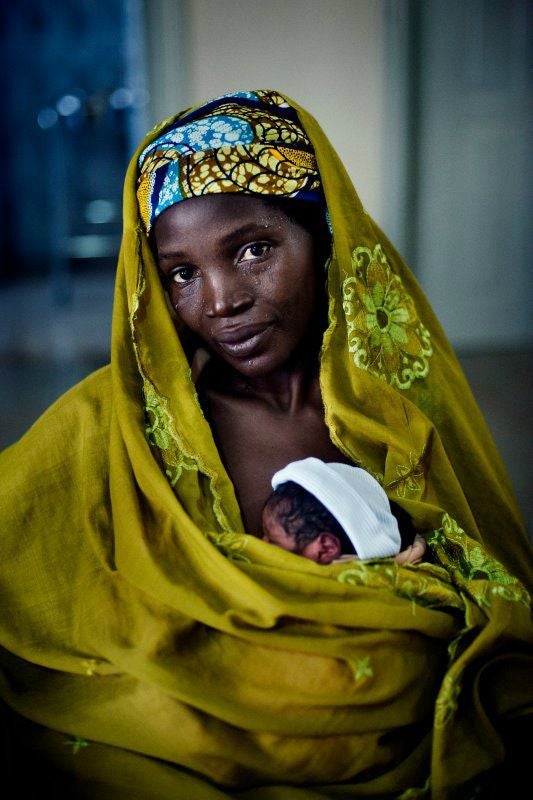Expert Insight
Unlocking the door to healthcare for all Nigerians
Editors Note: This interview was cross-posted from the Joint Learning Network for Universal Health Coverage, which aims to facilitate knowledge sharing among implementers working toward universal coverage. Nigeria, a member of the network, and is implementing reforms designed to strengthen primary health care systems across the country. Earlier this year, PHCPI developed a short brief on opportunities for Nigeria to improve their primary health care system.
Universal Health Coverage has been a priority in Nigeria since 2000, but it was really the National Health Policy of 2006 and the National Strategy Development Plan of 2010-2015 that elevated the need for UHC in Nigeria. Still, despite both these documents, not much progress towards UHC had been made until former President, Goodluck Jonathan, passed a declaration that called health a fundamental right and the responsibility of the government.
In response to the declaration, Nigeria enacted the National Health Act in late 2014, which laid out plans for addressing some key dimensions of UHC, including:
For Nigeria to fully implement this act, they will have to reform the current PHC system for low-income populations, as well as train employees and make sure quality of services is high.
Earlier this week, we had a chance to speak to Francis Nwachukwu Ukwuije, Senior Health Economist at Nigeria's Federal Ministry of Health to learn more about the reforms currently taking place in Nigeria and how they hope to move closer to universal health coverage.
Nigeria has laid out a bold new strategy aimed at achieving universal health coverage. How does the Ministry of Health aim to implement these reforms?
FNU: First and foremost, our commitment is to reach at least 30 percent of Nigerians through health coverage by the end of 2016. We are also committed to ensuring that each individual state in Nigeria makes meaningful contributions. Once we receive this funding, we will allocate 50 percent towards developing basic health care benefits packages; another 45 percent towards financing medicines, building infrastructure, and training human resources; and five percent towards emergency care.
What types of essential services will be included in the benefits package?
FNU: The National Health Insurance Scheme, which is covering 5 percent of population, and the Federal Ministry of Health will work together to develop a two-tiered benefits package. The first tier will be a basic health care package that will include general, preventative care for every Nigerian. Then we will include a comprehensive package for maternal newborn child health care. This benefits package should be available by the end of the year.
The Presidential Declaration also recommended setting up a Healthcare Financing Equity and Investment Team. What would be the role of this team?
FNU: The Presidential Declaration recommended that we need a stronger governance and accountability structure in Nigeria. Therefore, the FMoH developed the Healthcare Financial Equity and Investment Team in 2014 to guide key decision-making and strategic planning towards implementing health reforms towards UHC. The Working Group is currently comprised of Nigerians and non-Nigerians who are experts in health financing (government, civil societies, private sectors, and academia). The Working Group also provides technical guidance and advice in the area of health financing in Nigeria. What we’re doing now is conducting a situational analysis to inform the development of the country’s healthcare financing policy.
The Working Group meets as often as possible. We have not met this year, but in 2015 we met up to seven times. In 2016, we intend to meet even more that that because there is so much to do. We know that people are busy, so we try to use schedule our meetings around pre-existing events and opportunities.
How have these recommendations impacted the health sector landscape in Nigeria?
FNU: The implementation of the National Health Act is progressing slowly, but surely. Since the law passed, we have been able to develop the first part of the two-tiered benefits package (the basic health care package) already. We have also developed guidelines for how to manage the basic health care provision fund. So there have been a number of accomplishments since 2014-- I think we’re on track.
What have been some of the challenges of implementation to-date?
FNU: We have had many challenges related to governance. Nigeria is a federal nation. There is a federal government and 36 autonomous states. For us to be able to have all 36 states to come together to achieve a common goal is quite challenging to coordinate.
Additionally, we need to manage the diversity and the separate interests of the health sector. Each and every health personnel (i.e. doctors, nurses, etc.), for example, has [his or her] own interest. We need to strategically manage everyone’s interests and priorities, while simultaneously encouraging everyone to come together to achieve UHC in Nigeria.
